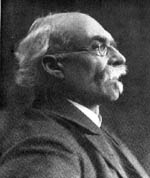I wrote a paper titled “Social Interest and ‘As-If'”.

In the 16th and the 17th century, there were religious wars in Europe. It was battles between different justices. Totally intolerant without any compromise they fought with each other. Many people were killed but there was no hope of peace.
Jean Bodin wrote a book named “Les Six Livres de la Republique” (The Six Books of the Commonwealth) in 1576. There he referred to a theory of medieval theology about two kinds of power of God; the absolute power (potentia absoluta) and the ordinate power (potentia ordinata). The absolute power is transcendental and we, human beings, cannot understand it, while the ordinate power works in the realm of the nature and we can understand it by the reason. The realm of the nature can be understood through natural theology, natural science, natural law, etc. Then he regarded religion as a private affair that relates to the absolute power, and politics as a common matter that relates to the ordinate power that can be explained and regulated by the reason. Separation of the church and the state was established.

This is so-called “Descartes’ Paradigm”. As a consequence, the 18th and the 19th century was an era of peace. The international law was established, and war was regarded something like a personal duel. None of the concerned nation was thought to have justice. The only problem was the method of battle. The law prescribed the method of a right fight. If one of the parties violates the law, neutral countries punish it. As a consequence, the war can be treated as a matter of civil affairs. The peace was one of merchants.
The World War I destroyed this equilibrium. Both sides violated the law, and there was no neutral country that can judge. The War, however, was an inevitable consequence of Descartes’ Paradigm.
During the War, Adler got the idea of the Social Interest. It was a new idea on justice. Adler, however, proposed it according to the ‘As-If’ philosophy of Hans Vaichinger. Social Interest is not the absolute truth, but it is just regarded ‘as if’ it is the absolute one. We should not forget this relative viewpoint; otherwise we might fall again into the hell of endless battles. He was going to overcome Descartes’ Paradigm using the ‘as if’ concept.

